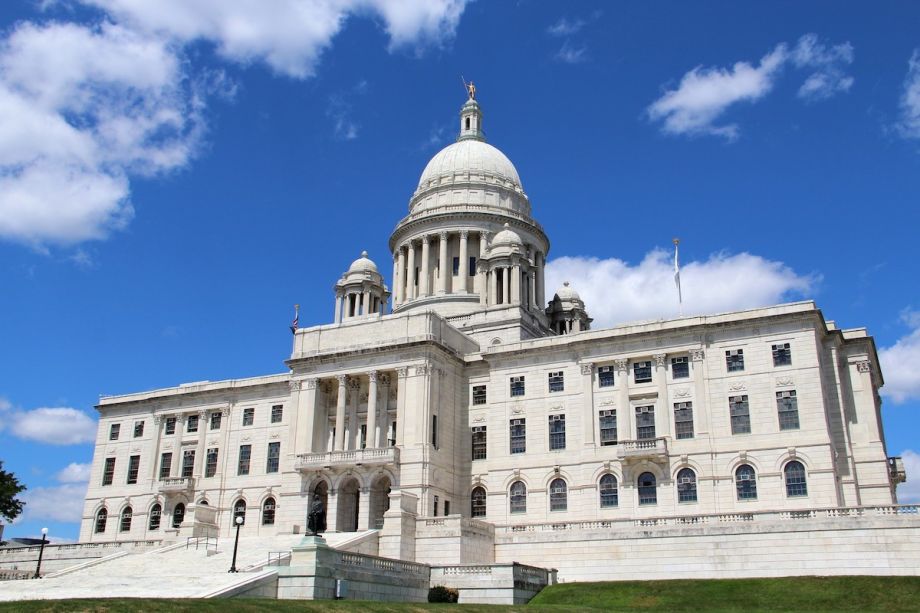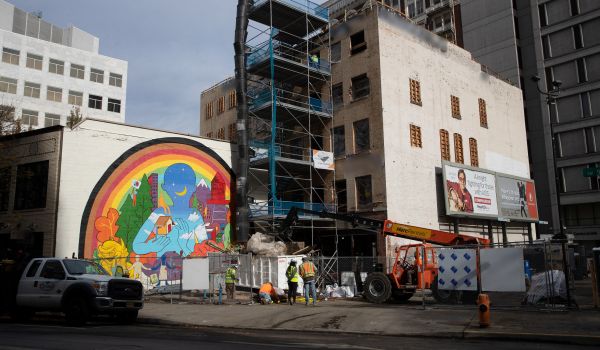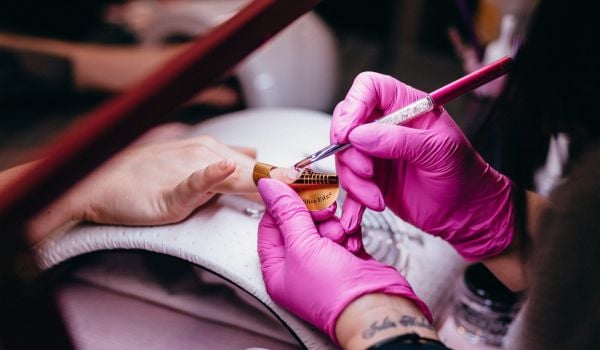In July, Rhode Island became the first state in the country to authorize the use of safe injection sites statewide. The landmark legislation signed on July 7 will create a two-year pilot program to establish harm reduction centers permitting people to consume illicit drugs under medical supervision. The centers will also provide health screenings, needle exchange and recovery support.
The state’s Department of Health has to create regulations around the use of these sites by March 2022, and then cities and counties will have to vote to authorize the centers in their district. While some harm reduction services will be taxpayer funded, the state has not earmarked any money for safe consumption, which will be privately funded. Establishing the centers permanently will likely require new legislation in 2024 or thereafter.
But in order to get the centers running, the state’s recovery community will face a new set of challenges including getting counties to opt in, convincing neighbors to accept the centers, getting police to cooperate and hoping the federal government supports the law.
Advocates say Rhode Island was the first to enact such legislation in part because of the outsize impact of the opioid crisis. Overdose deaths totaled 384 there in 2020, according to the state’s health department. In 2018 the state ranked eighth in the country for per-capita drug overdose deaths, according to the National Institute on Drug Abuse. This meant many politicians understood the crisis on a personal level.
“There are many lawmakers who have personal experience with losing a family member to overdose,” says Annajane Yolken, executive director of Protect Families First. “There’s a lot of understanding that overdose is a public health concern.”
While harm reduction is perceived as controversial, advocates say the bill had relatively little pushback. Haley McKee is co-chair of Substance Use Policy Education and Recovery PAC (SUPER PAC), which helped advocate for the legislation. McKee, who is formerly incarcerated and a former IV drug user, attributes the bill’s passage to a tight-knit recovery community in Rhode Island, but also researchers from Brown University whose work on harm reduction helped inform the bill. It helped that the impetus for the bill began with the Rhode Island Medical Society, according to Yolken.
Over 100 safe consumption sites exist worldwide and while they’ve been understudied, the available evidence shows that they reduce overdose deaths. A 2017 survey of findings notes a 35 percent reduction in overdose deaths within 500 meters of a consumption site in Vancouver. Further, over 80 HIV infections were prevented annually there. In Spain, overdose deaths were almost cut in half over a decade and HIV infections were reduced more than 10 percent. No overdose death has been recorded at a safe consumption site. The sites can also divert people who want it to treatment: Vancouver, within three years of a safe consumption site opening, saw 46 percent of people using the site enter treatment.
There will be challenges even once the Rhode Island centers are set up in 2022. There is no certainty that police will give the injection sites the space they need to thrive, though representatives from the Rhode Island Police Chiefs’ Association and Rhode Island State Police serve on the Governor’s Overdose Prevention and Intervention Task Force. The state downgraded possession of small amounts of most controlled substances from a felony to a misdemeanor in July, but drug users trying to access harm reduction centers could still be subject to arrest in transit.
Some elected officials believe a lack of pushback from law enforcement is a sign that police will act in partnership with advocates, though no formal policy forces them to do so.
According to State Senator Joshua Miller, a proponent of the legislation, law enforcement on the governor’s task force did not express concern about the legislation, nor did they protest during the hearing for the safe consumption legislation.
“It’s important and already part of the process that the community supports it,” Miller says. “That’ll include law enforcement support and nobody has shown us otherwise.”
But McKee and others are more skeptical, and there’s nothing in the state’s law that would prevent police from conducting arrests before or after visits to the centers. “I don’t have anything positive to say about our police chiefs in Rhode Island,” McKee says. “It’s going to have to be a wait and see.”
While the legislation sanctions the safe injection sites and tells the RI Department of Health to create a framework for their use, it does not stipulate where they should go or how many should go up. This will be the difficult next step in the process, as advocates push to get the centers in population-dense areas where they can be of the most benefit. To do this they will have to deal with NIMBYism as community members potentially protest the centers in the neighborhood.
“The responses I’ve gotten from some but not all of our lawmakers, and unfortunately they’re coming from areas that are the hardest hit, is ‘no more social services in my district,’” says McKee. She says she and other advocates will continue to meet and engage with people to ensure community buy-in.
It won’t be possible to select sites until an advisory committee is established and the Department of Health’s regulations are set. But Yolken hopes that multiple sites go up across the state so the law is as effective as possible, as people are much less likely to access services for which lots of travel is required.
“Rhode Island has a really small town attitude. People joke you need to pack a sandwich to travel 10 minutes,” Yolken says.
McKee says that officials in Providence and Pawtucket have expressed interest, both cities in Providence County. Providence County would likely benefit from multiple centers — geographic data mapped by Prevent Overdose RI shows 93 of the state’s 384 overdose deaths in 2020 occurred in the county.
The law also faces an uncertain legal landscape. A supervised consumption site in Philadelphia was blocked in January by a federal appellate court after the Department of Justice sued, citing a 1986 statute that made it illegal for property owners to knowingly let people consume controlled substances on their premises. That statute was sponsored by then Senator Joe Biden, but advocates feel President Biden’s administration will be less likely to oppose the use of safe injection sites than the Trump administration.
“We’re optimistic that this new administration is going to take the side of saving lives,” Yolken says.
In April, several mayors, including San Francisco’s London Breed and Oakland’s Libby Schaaf, wrote a letter to Attorney General Merrick Garland asking the Biden administration to drop any threats of lawsuits over safe injection sites.
Rhode Island’s medical community and advocates are hoping that the state’s law will not face legal obstacles and set a national model. As Yolken points out, supervised consumption sites are not an untested model, but would provide a cleaner, more resourced and safer environment than people are used to.
“People have been taking care of each other in their communities for a very long time, this is formalizing it,” Yolken said.

Roshan Abraham is Next City's housing correspondent and a former Equitable Cities fellow. He is based in Queens. Follow him on Twitter at @roshantone.
















